Enchanted And Poetic Japanese Words
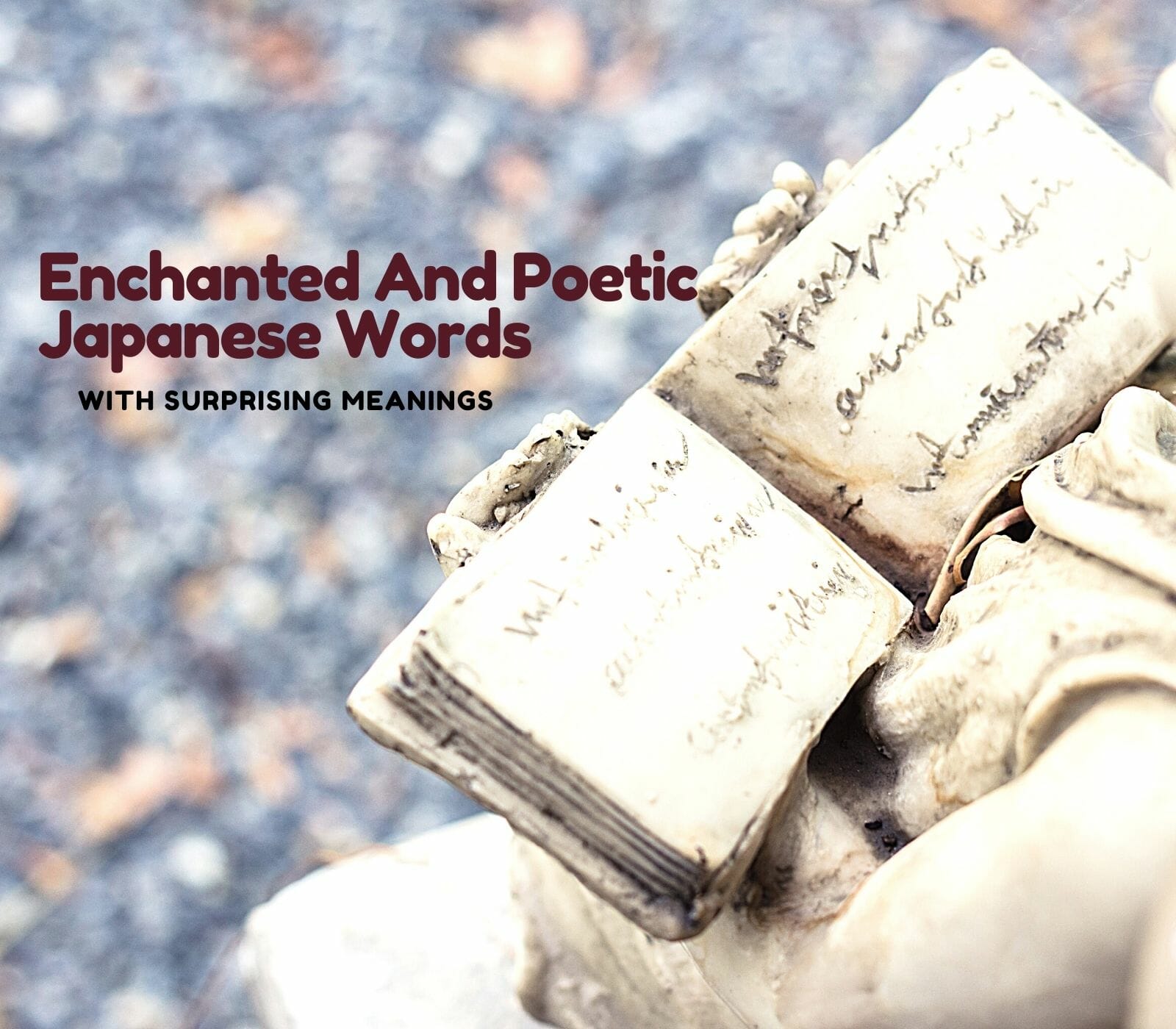
Enchanted And Poetic Japanese Words with Surprising Meanings
Japanese is a rich Language and a very poetic one as well. There are many Japanese poetic words that evoke, feelings that we may have difficulties translating.
A language reflects the cultural uniqueness of a people. We realize that Japanese culture goes hand in hand with the most diverse elements of nature.
As an example, we can mention the many poetic words created to express a concept or a feeling, which does not always allow us to find suitable translations in other languages.
We are listing below 15 examples of Japanese poetic words that fit this profile. I am sure that these words will make you look at nature from another perspective. By putting the concept of some of them into practice, your life will indeed flow better and be filled with more poetry.
Wabi-Sabi わ び さ び
As a Japanese Poetic Word, Wabi-Sabi is much more than a phrase. It is a way of life.
It is finding beauty in seemingly insignificant things. It is to accept the life cycle peacefully, such as the wrinkles of the face and the natural wear and tear of things. It is to be open to receive and embrace situations even with their cracks and imperfections.

Hakanai 儚 い
The Uniqueness of Hakanai word makes it a beautiful and name whose meaning is “Ephemeral” or “Temporary.” Still, this translation alone does not express the full meaning. Hakanai has a much sadder and a melancholia connotation, and for this reason, it is very present in poetry.
It also portrays the impermanence of life, but it can have other meanings depending on the context. For example, Hakanai Koi [は か な い 恋], means “unrequited love.”
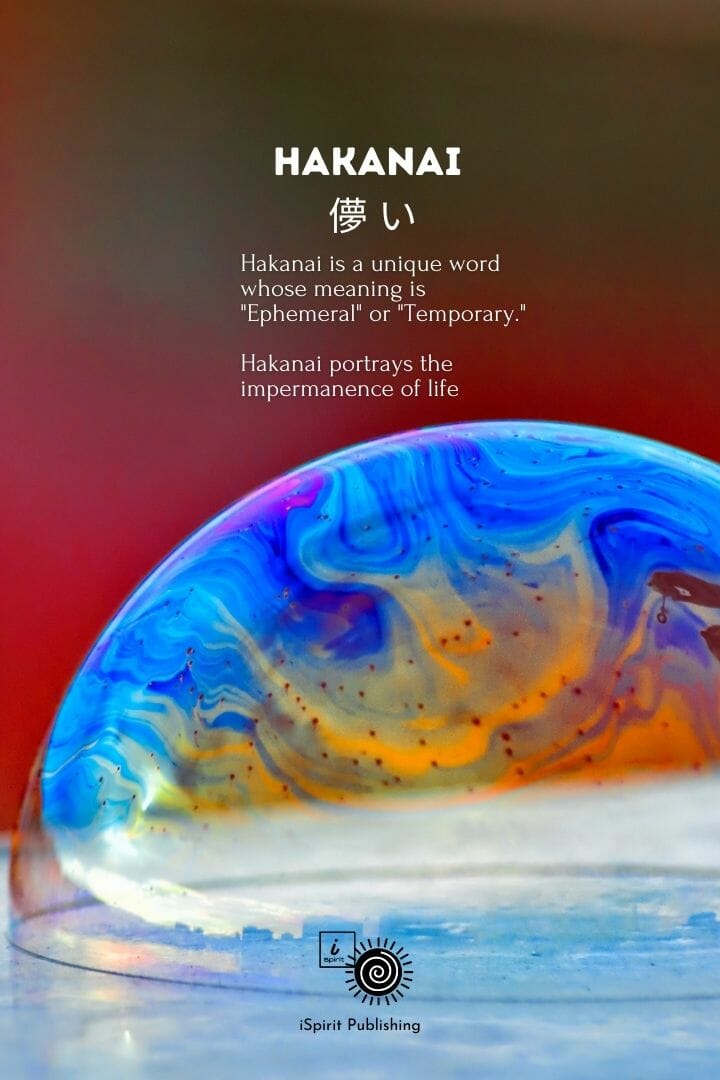
Kogarashi 木 枯 ら し
This one inspires a sensory stimulus. Because Kogarashi is the cold wind that foreshadows the arrival of winter. You know that wind in late autumn that makes fallen leaves swirl on the ground? Yes, it has a name in Japanese: Kogarashi.
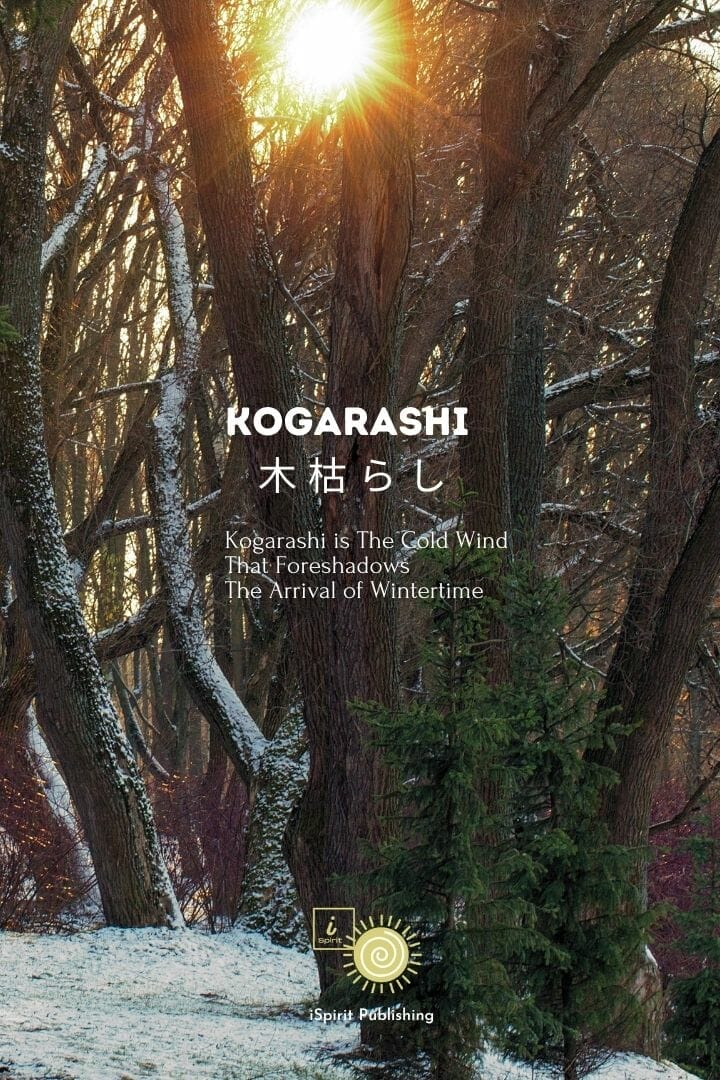
Mononoaware 物 の 哀 れ
We can say this is an interesting one because Monoaware can have different interpretations. Still, in a general context, it means the melancholy and poetic sadness that affects us concerning the transience and impermanence of things.

Shinrinyoku 森林 浴
With one of the most fascinating meanings, Shinrinyoku means “forest bath.” It consists of seeking spiritual refuge and relaxation in a peaceful and silent forest. According to studies, this practice has beneficial health effects, reducing stress and anxiety levels, promoting a better life quality.
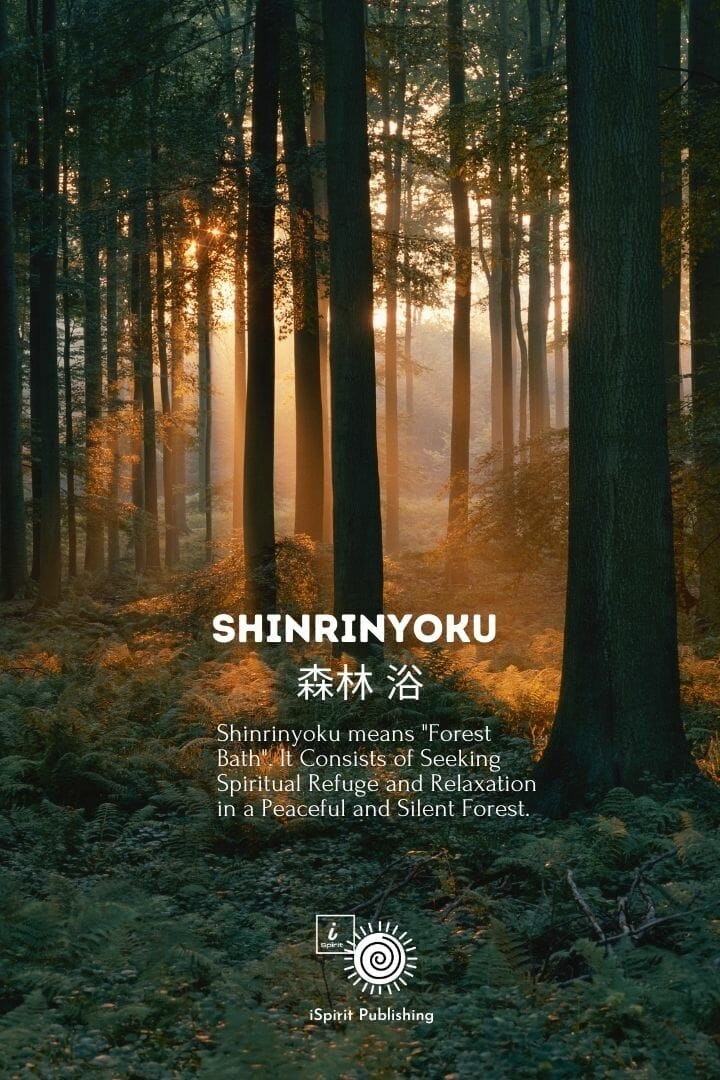
Yuugen 幽 玄
With a surprising meaning, the word Yuugen describes “a deep feeling of Awe towards the beautiful and mysterious universe.” It also serves to illustrate the subtle depth of things that are vaguely suggested in poems.
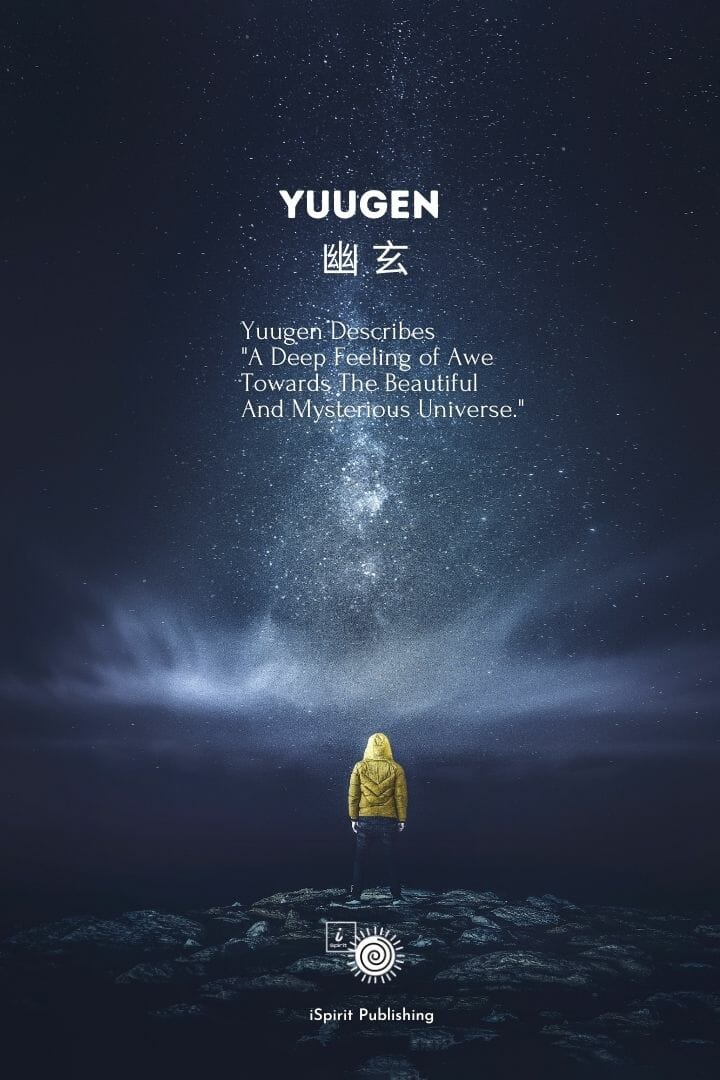
Satsukibare 五月 晴 れ
The Satsukibare is an expression that defines “a sunny day during the rainy season.” It usually refers to May’s month, characterized by the end of spring and the beginning of summer, marked by the rainy season, known in Japan as Tsuyu [梅雨].
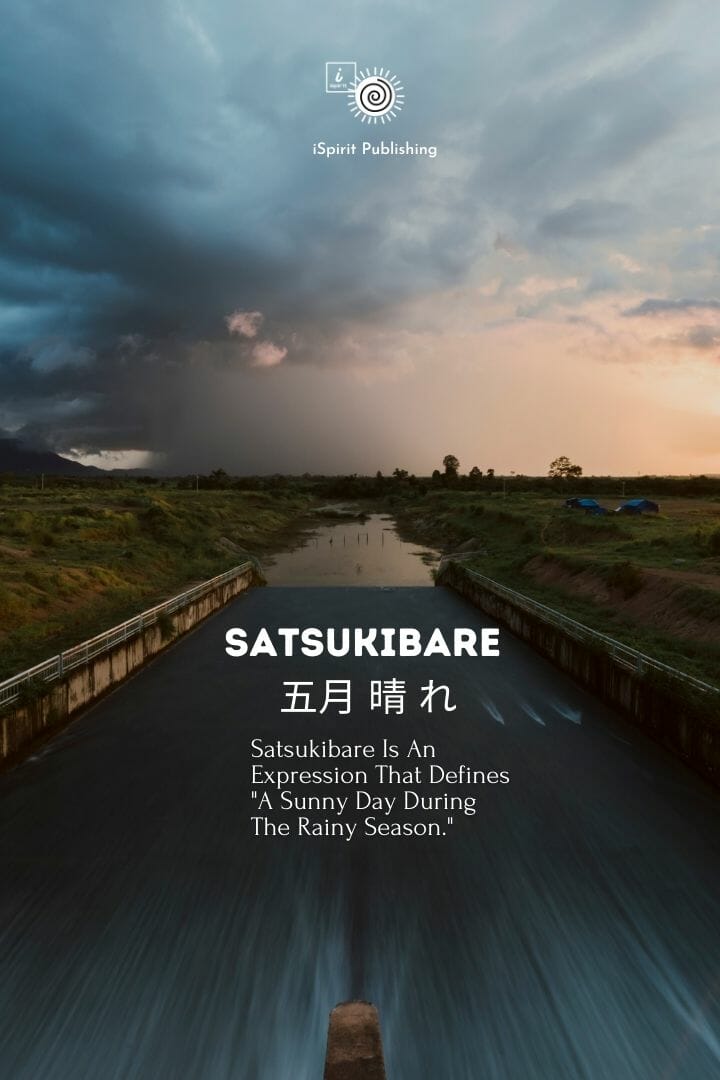
Omotenashi お も て な し
This poetic word Omotenashi is sometimes translated as “hospitality,” although its meaning goes much deeper. It is the continuous effort to please a guest or to make them welcome. It is a sincere feeling without any hidden interest or motive behind this act.

Ikigai 生 き 甲 斐
A soul-inspired word, Ikigai means something like finding a “purpose in life” or a “reason to live.” It is a concept within ourselves and therefore requires a deep and time-consuming inner search to find it. Upon finding it, we discover the meaning of life or “a reason to get up in the morning.”
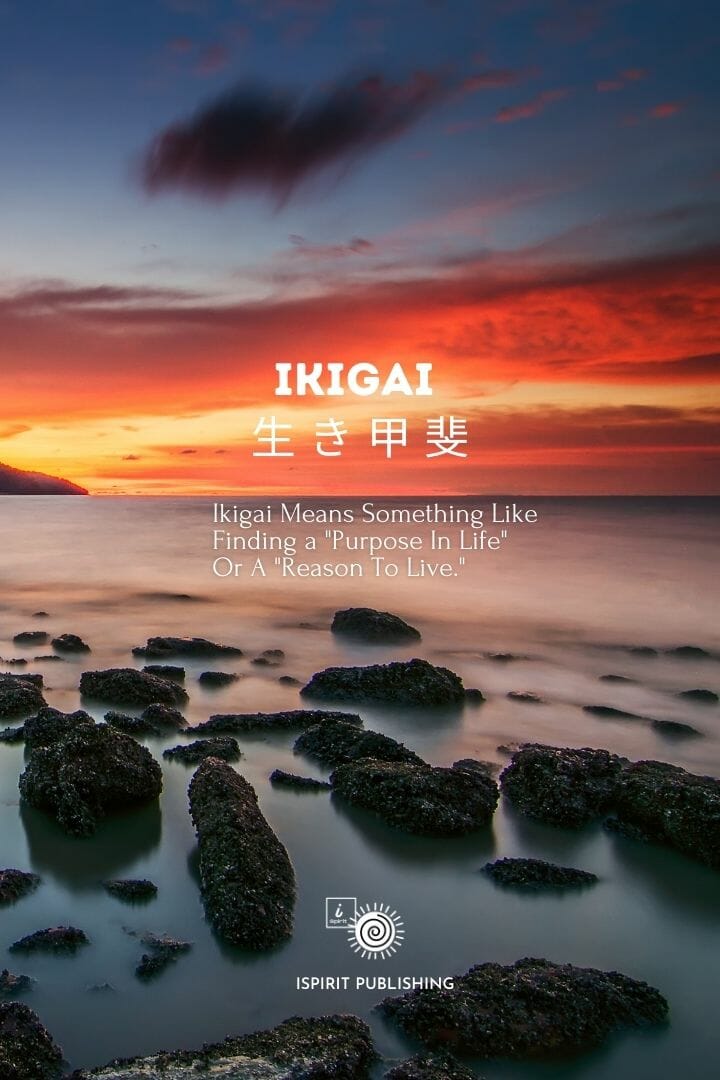
Komorebi 木 漏 れ 日
Evoking our Ecological and environmental poetic stills, the keyword Komorebi refers to the sunlight that filters through the trees’ leaves.

Shibui 渋 い
About the word: Shibui is a word that refers to something that has a simple, subtle, and hidden beauty. It is related to other Japanese aesthetic terms, such as Wabi-Sabi, and can be used comprehensively and not only to art or fashion matters.
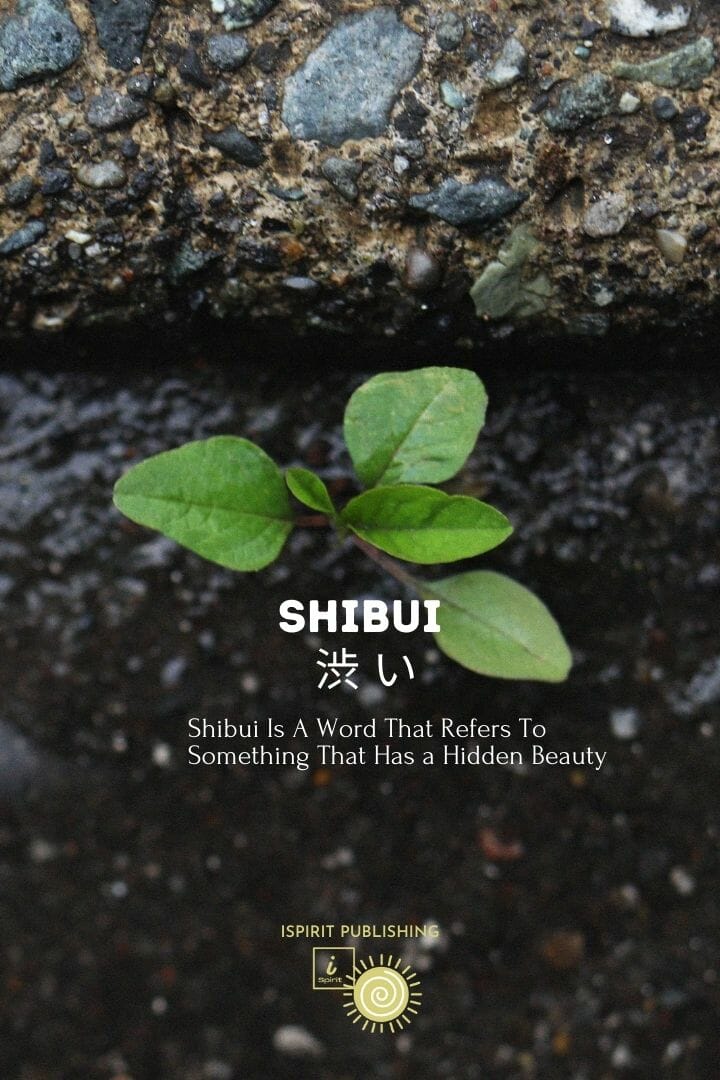
Osewaninarimashita お 世 話 に な り ま し た
Exalting the best feeling from our hearts, the word Osewaninarimashita translates as, “Thank you for taking care of me” or “Thank You for Your Kindness and Support.” It is a farewell word, but at the same time is a gratitude gesture. A Thankful word after spending a period as a guest at the home of a friend or relative. It can also be said when saying goodbye to teachers or other people who helped us during a period of our life.
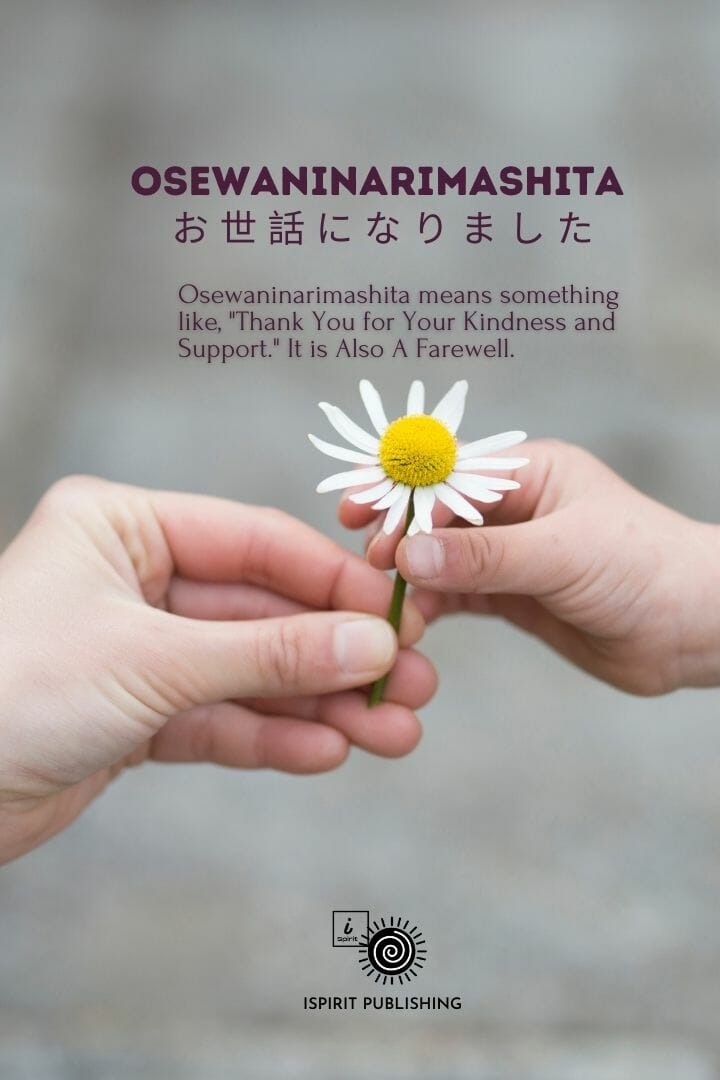
Kawa Akari 川明 か り
A synonym of light and beauty, the Japanese poetic word Kawa Akari can be translated as “the sunset reflected in a river.” Also as “the brightness of a river in the darkness” indicating the pleasure one has when faced when immersing in this beautiful scenery.
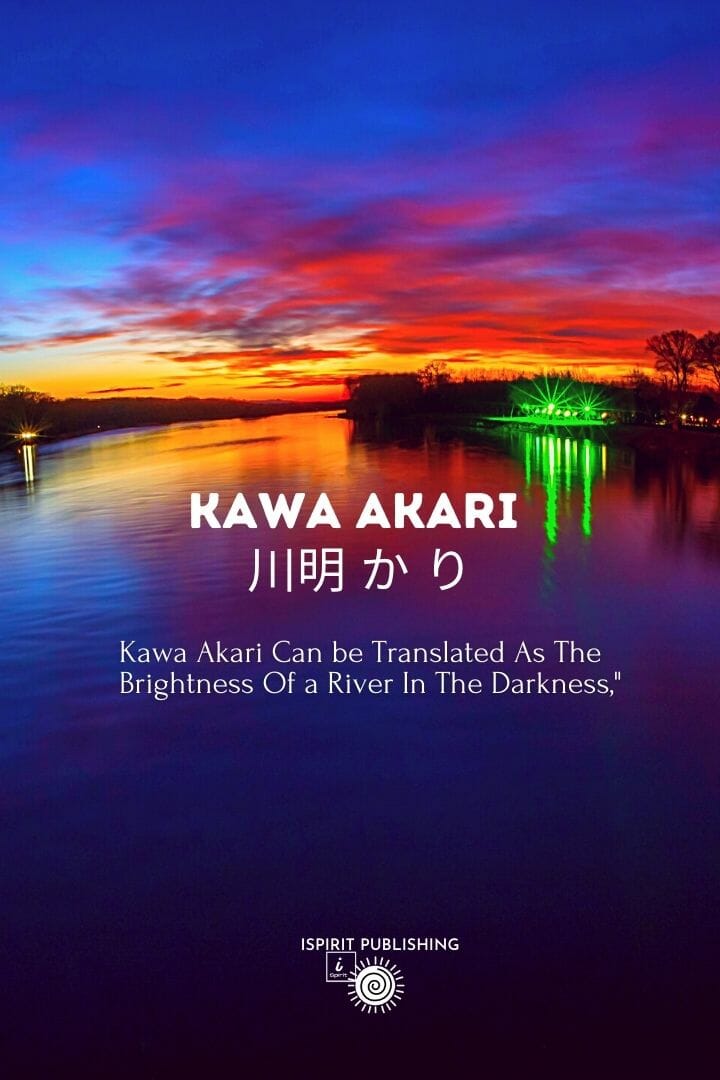
Poetic Japanese Words: Fuubutsushi 風物 詩
Another sensorial and ludic word, Fuubutsushi, is the sensation that appears when a perfume, poetry, or an image reminds us of something important that happened in our lives. It refers to the remembrance evoked in a specific season of the year.
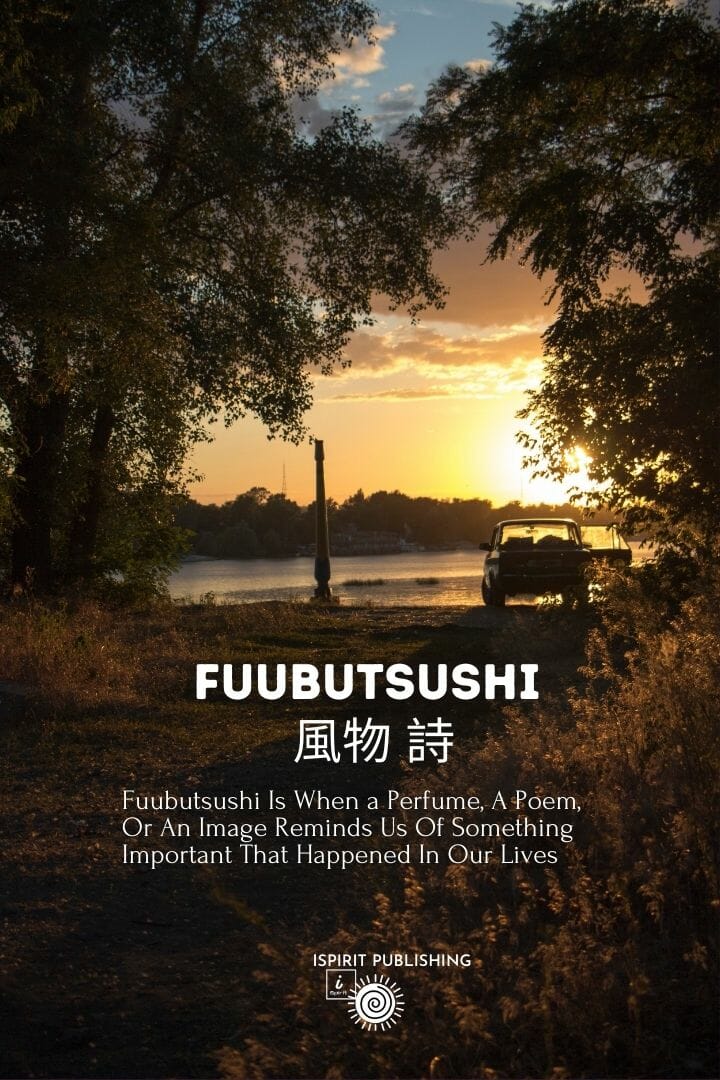
Koi No Yokan 恋 の 予 感
A romantic note of this world brings a nostalgic loving feeling.
The word evokes the feeling after meeting a special person that they will live a love story after a while. It is a different feeling from what we call “love at first sight” since love does not really exist yet, only the premonition that it is inevitable.
It is an expression we get by meeting someone and feeling that a great love story will happen over time.
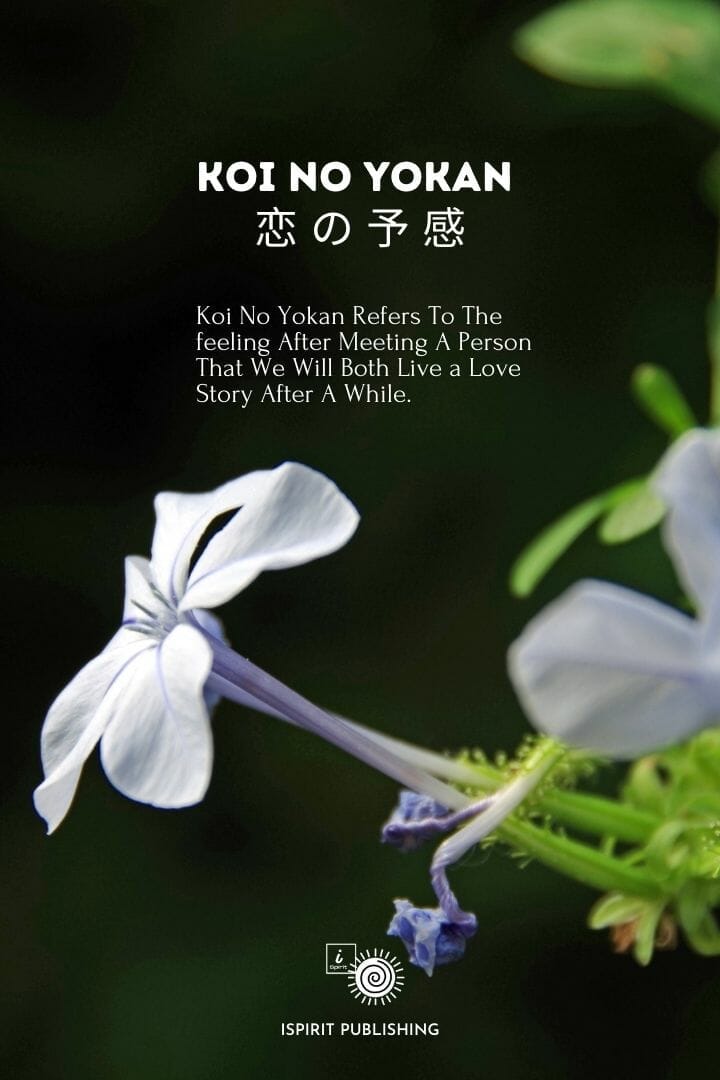
Follow us on Facebook




